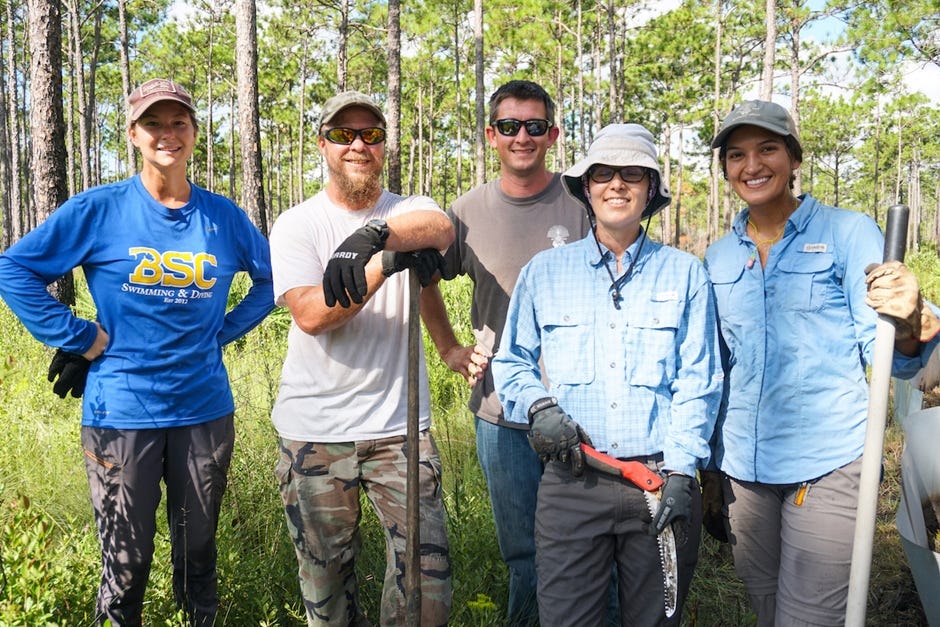![Gulf Coast Ecosystem Plain Partnership developed teams of specialists called the Ecosystem Support Team and the Wetland Support Team to work across the entire landscape. Both teams, pictured here, will be working on reticulated flatwood salamander recovery efforts. All of the team members, under the Longleaf Stewardship Fund, will be able to help the 15 GCPEP partners with important conservation projects. [SPECIAL TO THE NEWS BULLETIN]](http://127.0.0.1/wordpress/wp-content/uploads/2022/01/ghows-DA-7665f194-6a84-2545-e053-0100007f58dc-c478bec7.jpeg)
Gulf Power, in partnership with the National Fish and Wildlife Foundation and other groups announced its 2018 round of Longleaf Stewardship Fund grants that will benefit habitat restoration and species recovery across Northwest Florida.
The lion’s share of the $1 million — $920,000 — has been awarded to Longleaf Alliance for work on Gulf Coast Ecosystem Plain Partnership lands. GCPEP is a collaboration of 15 public and private landowners with over 1.3 million acres of land that stretches from the Florida-Alabama border on the west, east to the Choctawhatchee River and includes the Conecuh Forest that adjoins the Blackwater River State Forest on the northern border of Santa Rosa and Okaloosa counties.
The partners take a landscape approach to conserve and restore the dwindling longleaf pine ecosystem.
“This is the most money we’ve received at one time, and it’s a huge step for ecosystem restoration and rare species recovery in the landscape,” said Vernon Compton, the Alliance’s GCPEP director.
“It will allow our Ecosystem Support Team to work across the landscape on multiple projects from helping with prescribed burns to invasive species control, and to do more work on species recovery. The Ecosystem Support Team is trained for the specialized and labor-intensive work rare species recovery requires.”
The grant dollars will be used to:
•Restore and maintain 112,958 acres of longleaf pine habitat within the western panhandle of Florida and southern Alabama.
•Prioritize and accelerate, in this same area, recovery of declining and at-risk species, including bobwhite quail, gopher tortoise and reticulated flatwood salamander.
•Support local environmental conservation jobs.
•Provide ecosystem support for reticulated flatwood salamander breeding wetlands.
•fund the rescue of gopher tortoises from construction sites in Central and South Florida and relocate them to the Eglin Air Force Base conservation lands. The project’s goal is aimed at bolstering the populations to prevent the tortoises from being listed in 2023 under the federal Endangered Species Act, a development that could impact some of Eglin’s training and testing operations.
The fire-adapted longleaf pine ecosystem once encompassed more than 90 million acres across the Southeast, but it has been reduced to only about 5 percent of its historical range. It supports immense biodiversity and important game species such as the bobwhite quail, wild turkey and white-tailed deer.
Go to https://www.nfwf.org/longleaf/Documents/2018grantslate.pdf for a complete list of the 2018 grants made through the Longleaf Stewardship Fund.


This article originally appeared on Crestview News Bulletin: Groups combine to support longleaf pine, other conservation efforts
